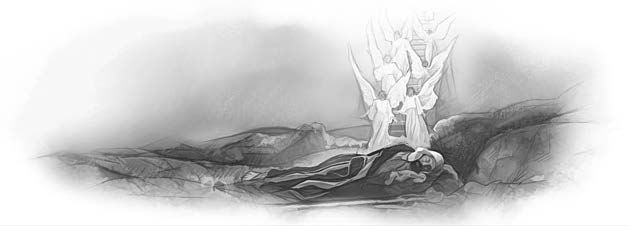As is my custom, I opened my Bible to read on a flight from Namibia to South Africa. Immediately, a young man beside me spoke up.
“Is that a Bible?” he asked. He apparently was from Eastern Europe.
“Yes, it’s a Bible,” I said.
“Do you believe in the Bible?” he inquired.
“Yes, with all my heart.”
He said his grandparents used to read the Bible to him but that he didn’t believe the stories, especially Creation. I shared my life-changing experience as a person who had returned to God after 15 years on my own and was led by Him to a place of safety in the world. He was interested in my story.
“Can I hold your Bible, please?” he asked.
It was thrilling to see my Bible in his hands. It seemed to make a big impression on him. After he handed it back, I read out loud from Isaiah 43. He listened with interest to God’s promises of protection.
Before the plane landed, I asked, “Would you accept a gift?” In my bag, I had a copy of Steps to Christ. He didn’t want to take the book, but I assured him that I had another copy. “If you have any questions, please text me,” I said, writing my phone number inside the cover.
To my surprise, within a day of my arrival home in Ireland, he texted, “I’m home safely.” I prayed, “I don’t think this is a coincidence.” He wrote that he had met a woman in Namibia who prayed daily. “Seeing that, I started thinking about my grandparents reading the Bible, and then I met you,” he said.
“I don’t believe in coincidences,” I said. “Let God to speak to your heart.”
We texted every so often, and I sent Bible verses. One day, he sent me a picture of a church. “I live next to this church,” he said.
I replied that I wanted to mail him a history of the Christian church and, when I received his address, I sent him The Great Controversy.
Sometime later, someone sent me a video about the plan of salvation, and I passed it on to him. He responded, “This is so amazing.”
I prayed, “Lord, I need to know what might work in his life.” A strong thought came to mind: He held your Bible. Give him your Bible.
I have decided to mail my Bible to him. I have written a letter, saying, “This is my most precious possession. God gave His only Son, the most precious thing that He had, for our salvation. I hope you will read this, my most precious possession.”
This mission story illustrates Spiritual Growth Objective No. 5 of the Seventh-day Adventist Church’s “I Will Go” strategic plan, “To disciple individuals and families into Spirit-filled lives.” Read more: IWillGo2020.org.

